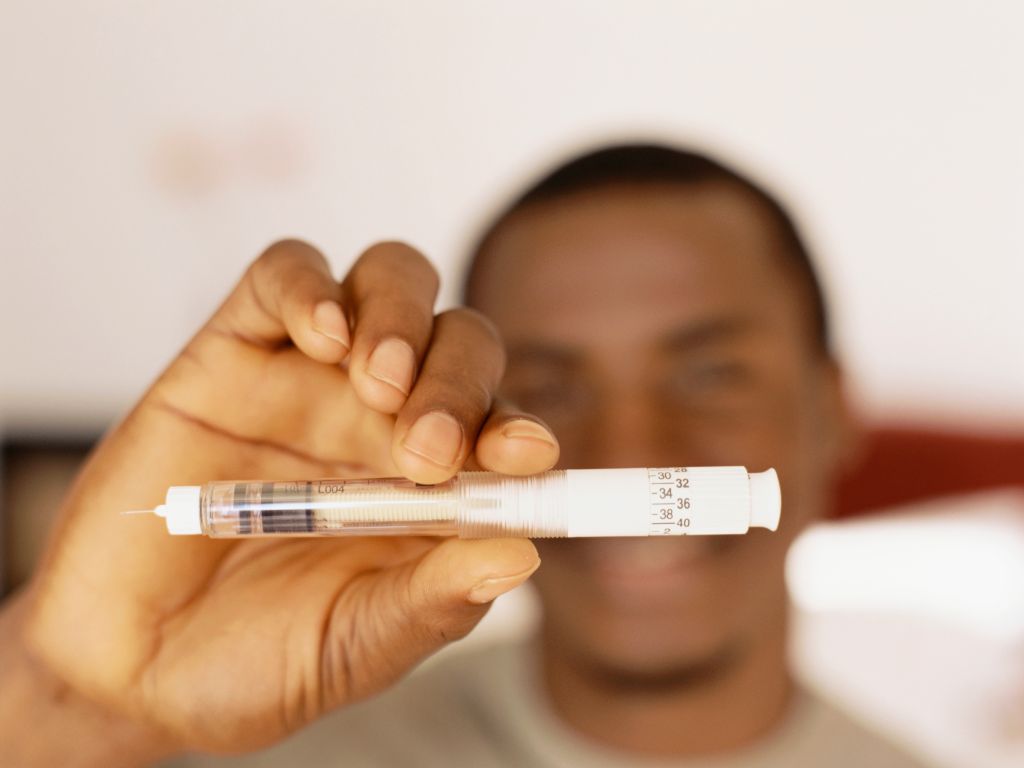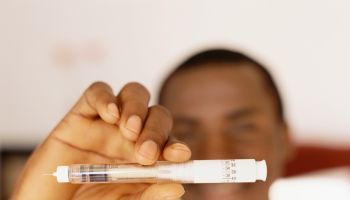
Source: Stockbyte / Getty
For most of us, the words “sugar diabetes” are quite familiar. Unfortunately, in the black community, it is a phrase we have heard used far too often, usually associated with our “Mema,” “Papaw,” “Auntie,” or “Uncle.” The correct term for “sugar diabetes” is Diabetes Mellitus (DM). According to the American Diabetes Association (ADA), “13.2% of all African Americans aged 20 years or older have diagnosed diabetes.” African Americans are also 1.7 times more likely to be diagnosed with the disease than non-Hispanic whites. Black women who develop gestational diabetes (a form of diabetes that occurs during pregnancy) have an even greater risk of developing type 2 diabetes later in life.
Diabetes is a group of diseases that can affect your body and how it processes sugar (glucose), which is used as energy. When you eat, your body turns your food into glucose, and your cells open to take in the glucose when your pancreas releases insulin. If the pancreas doesn’t produce insulin or it produces very little, it creates a condition in the body called “insulin resistance,” also known as diabetes.
The most common form of diabetes is type 2, which occurs when the body does not produce enough insulin to keep your blood glucose levels normal. Type 1 diabetes occurs when insulin producing cells in the pancreas are destroyed by the body’s immune system. When that occurs, the body no longer produces insulin and needs help to control your blood sugar levels.
Reports from the ADA indicate that every 17 seconds someone is diagnosed with diabetes. Researchers don’t fully understand why some patients develop type 2 diabetes while others do not, but they do agree that certain factors can increase the risk of developing the disease. One of the primary risk factors is being overweight, especially if you carry extra pounds around the abdomen;
the fattier the tissue in your body, the more resistant your cells become to insulin. You don’t, however, have to be overweight to develop the disease. Another risk factor is having a family history of diabetes. If your parents or siblings are diabetic, you may be at a greater risk of being diagnosed yourself. Lack of exercise and poor eating habits can also contribute to putting you at risk for diabetes. Researchers at the World Health Organization report that the risk of developing type 2 diabetes is greatly reduced with moderate intensity exercise and a healthy diet.
Education is key to the prevention and management of the disease. So, talk to your doctor or healthcare professionals to get more information and find out what you can do to stay on top of your health.
By J. Lashelle
Sources: http://main.diabetes.org/dorg/PDFs/Advocacy/fact-sheet-advocacy-african-american.pdf
https://www.mayoclinic.org/diseases-conditions/diabetes/symptoms-causes/syc-20371444
https://www.webmd.com/diabetes/guide/diabetes-basics#1-1
http://www.who.int/features/factfiles/diabetes/en/ https://www.diabetesresearch.org














